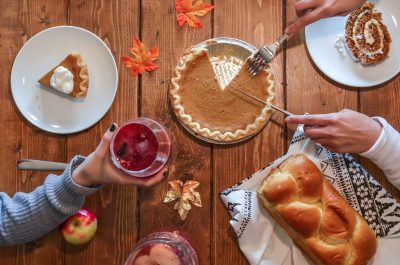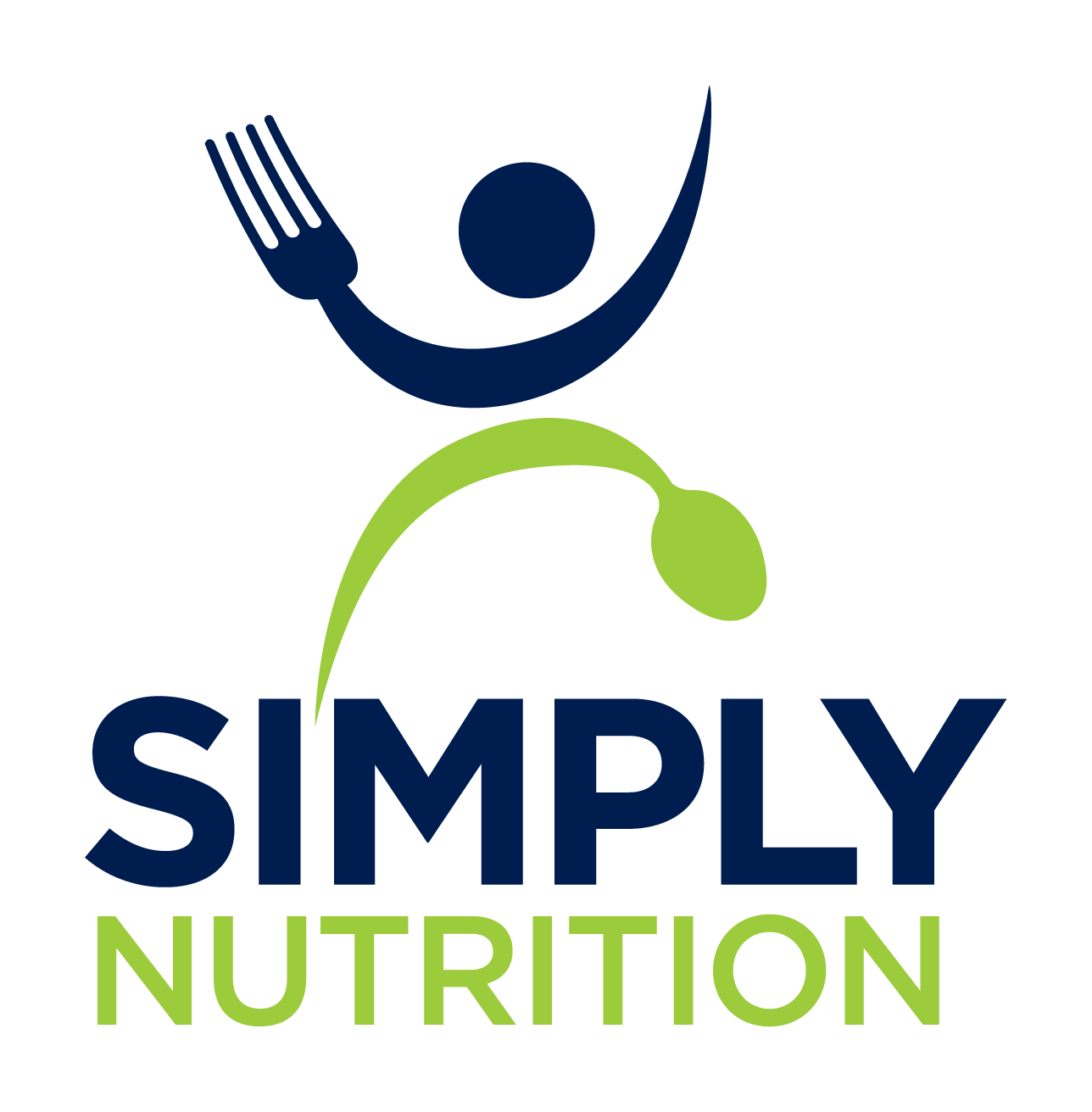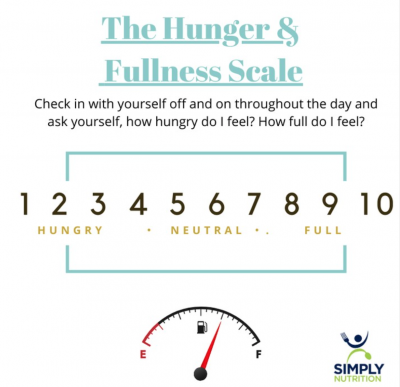The 411 on Intuitive Eating during the Holidays
Posted on November 16, 2020 at 1:14 pm | General Wellness | simplynutrition
Ahh the holiday season... Equal parts fun and stressful. Between busy work days, gift shopping, family guests in town, and plenty of parties & food, the holidays can be a bit overwhelming, especially if you’ve just recently decided to quit diet culture and focus on a healthier relationship to food & your body. But intuitive eating during the holidays can be an amazing way to feel good, enjoy your favorite foods, and feel less out of control around holiday foods, all while honoring your health.

Read along for our top tips on intuitive eating during the holiday season!
Structure/importance of regular meals and snacks
- Eating regular meals and snacks is even more important during the holiday season. While busy schedules due to holiday travel, family plans, etc. often make our typical routine turn on its head – keeping some of your regular mealtimes can be helpful in eating balanced food choices. Aim to plan a little bit, whether it’s having some balanced snacks on hand, making a few lunches ahead of the week, or prioritizing grocery shopping. And always avoid skipping meals around holiday meals – avoid skipping meals to “save up” – this simply backfires. It’s only going to set you up for feeling out of control due to being overly hungry! Trust us, eat a balanced breakfast the day of Thanksgiving and thank us later 🙂
Gentle nutrition
- If you feel like you’ve done some good work around rejecting the diet mentality, and want to still prioritize nutritious foods during the holiday season, think about practicing gentle nutrition. Enjoy those favorite foods, but maybe think about when you can balance out your plate with colors. Love mac n cheese? Awesome! Maybe throw some broccoli in there and add some protein to keep you fueled longer. When we first start intuitive eating and we give ourselves unconditional permission to eat, it can be easy to want to eat all the fun foods, all the time, simply because they’ve been off-limits for so long! But take it slow, and think about adding in nutritious foods into your routine in a flexible way, instead of rigidly. For example, maybe you have pizza one night, so you could try a green smoothie for breakfast the next day. Or maybe you’re in the mood for pasta, but you try adding in some extra veggies to it.. The intention behind it is what matters most. If you’re making healthy swaps or adding in nutrient-dense foods out of restriction or fear of weight gain, then that’s usually a sign there’s still some restriction and diet mentality at play.
Avoid demonizing food
- Give yourself permission to enjoy your favorite foods. Bring awareness to what thoughts pop up in your head about food. Are you telling yourself you “can’t” or “shouldn’t” have any dessert? Is the thought, “I better diet after this..” making your eating less peaceful? As soon as we demonize a food or even perceive that it’s off-limits, we are driven to it even more. It’s simply human nature and how our brains work. The more something is “forbidden”, the higher its reward life builds. And when we do ultimately “give in” and eat it, it holds so much power over us it’s much easier to feel out of control and overeat it past fullness. Make all foods morally equal, there are no good or bad foods! Give yourself permission this holiday season, and you’ll be able to listen to your body, rather than your emotions with that food.
Mindfulness
- With holiday craziness, parties, family traditions, shopping, and work, it’s extra hard to be mindful this season. Mindfulness helps us connect to our bodies – we are much likely to eat when we are hungry and stop when we are comfortable if we are tuning in, and not eating in a chaotic state. Focus on small bits of mindfulness that you can bring into your routine – whether it’s trying to always eat at the table (not on the go while running late), eating in a peaceful environment (turn off distractions), or slowing down while eating, mindfulness can be extremely helpful this holiday season. And bring in other aspects of mindfulness into your life simply to ease stress – try yoga, meditation, journaling, etc.
Tune into your body cues – hunger, fullness, satisfaction & avoid going to parties “hangry”!
- As mentioned above, honor your hunger by eating regular meals and snacks. As soon as we get overly hungry, that’s when we need food, and we need it STAT, making it hard to make conscious food choices. Pack snacks when you’re on the go, and tune into your body during the day and ask yourself, “How hungry am I? What sounds good? Am I hungry for a meal, or a snack?” Refer to the Hunger & Fullness Scale below to check in throughout the day.
Set boundaries around diet/body talk
- Ahhh.. diet & body talk. It’s always prevalent during the holidays and around friends and family. Set boundaries with those that make comments directed toward you, avoid triggering conversations, and spend time with those that have peaceful relationships with food & their bodies. And when a conversation about dieting pops up, you can always leave the room or change the subject. 🙂
Watch out for the deprivation mindset
- Part of intuitive eating is reminding yourself that all food is always allowed, and it will always be there. Be aware of the “Last Supper Mentality” – that is, overeating out of fear that the food isn’t going to be there, or be “allowed” (such as eating all the fun foods in the past before starting that fad diet…). This can easily happen during the holidays as we truly may only have these fun foods once per year! Slow down, savor the food, and remind yourself that there will always be more pleasurable foods – no need to eat them all right now. Focus on an abundance mindset, rather than a deprivation mindset.
Add in some feel good movement
- Movement can easily go to the wayside with busy holiday schedules, travel, and family get togethers, but aim to add in some movement when you can to feel good, not with the mindset of “burning calories”. Exercising during the winter months can help ease depression (such as with seasonal depression), help ease stress, increase your energy levels, improve sleep, and so much more. Focus on doing something that feels good to YOU, whether that’s heading to a hot yoga class, parking a little further away at the grocery store, or going for a family walk after dinner.
Vow not to go on a diet come January
- Even if you’ve come to terms with the fact that diet’s don’t work, and they fail for over 95% of people, it’s still triggering to hear what seems like EVERYONE talk about what diet they are going to try during the new year. Vow to avoid the dieting this year, and focus on long-term, enjoyable, sustainable healthy habits & behaviors, no matter what the scale says. Let us help guide you by setting up your initial nutrition assessment with on of our Registered Dietitians today!




